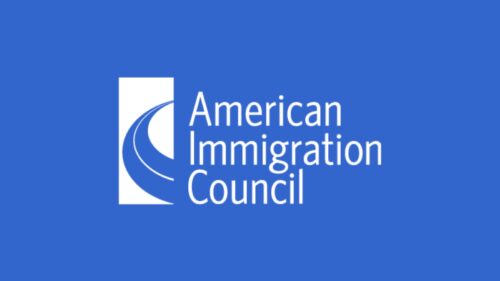WASHINGTON—A proposed rule by the Department of Homeland Security limiting the admission periods of foreign students and exchange visitors could devastate U.S. leadership in scientific research and technological innovation. The proposal would negatively impact American colleges and universities and foreign students seeking a higher education degree in the United States and have long-term effects for the legal immigration system.
With public comments due Monday, the rule will eliminate a longstanding policy that allows students and scholars to remain in the United States for the duration of their studies, also known as “duration of status.” The rule would limit the period of stay to a maximum of four years.
For some students from nearly 60 countries, most of which are Asian and African nations, the rule would impose a limited two-year maximum period of admission. That includes students from countries with visa overstay rates greater than 10% and students either born in or holding citizenship of a country on the State Sponsors of Terrorism list.
“This rule threatens to undermine the United States’ role as a world leader in education and stigmatizes tens of thousands of students based on their country of birth. New costs and bureaucratic barriers will make it more difficult for students and exchange visitors to complete their courses of study in the United States—uncertainty that will inevitably drive talented students from around the world to pursue their studies in other countries,” said Beth Werlin, executive director of the American Immigration Council. “We already have an appropriate system in place to ensure that international students and exchange visitors comply with the terms of their visas. This proposed rule is unnecessary and would significantly reduce our ability to serve as a destination for the most talented students and exchange visitors from around the world.”
The rule announced in September has drawn over 24,000 public comments from science and higher education leaders who have highlighted the impacts of limiting immigration of students who want to pursue science-based degrees in the United States.
The American Institute of Physics and 36 scientific associations and societies urged the Trump administration to prioritize the immigration of science and technology talent that will spur scientific breakthroughs and economic growth of the United States.
“This proposal gravely threatens America’s long-standing role as the world’s leader in training the next generation of mathematicians, scientists, and engineers. Graduate training requires years of dedicated study and research which cannot be carried out effectively under the cloud of government scrutiny and the prospect of deportation. Fundamental research is the engine of economic prosperity, and so this proposed rule, if put into effect, puts America’s future in jeopardy,” said Brian Greene, professor of physics and mathematics at Columbia University and the co-founder of the World Science Festival.
As part of a widespread effort to bring about an end to this proposed rule, AIP member societies are among those encouraging scientists, researchers, and other interested parties to contact DHS and make them aware of the significant impact on science students coming to the United States for their education.
Most first-time college students take more than five years to earn a bachelor’s degree, and many doctoral programs take more than four years. A typical mathematics PhD, for example, takes 5-6 years to complete.
Before the COVID-19 pandemic, international student enrollment had fallen by 10% since 2015. The new rule could accelerate that decline.
“If the United States is to remain a leader in science and innovation, we must encourage, rather than deter, the best minds from around the world to study and conduct research at our institutions. And in the midst of fierce global competition for talent, this is not the time to impose harmful, unnecessary restrictions,” said Miriam Feldblum, co-founder and executive director of the Presidents’ Alliance on Higher Education and Immigration. “International students deserve to know that they will be allowed to stay in the United States through their entire academic program, but this new proposed rule injects uncertainty and unwarranted hurdles. We urge DHS to rescind the rule, and we urge Congress and the courts to intervene to avoid long-lasting negative effects on the United States.”
A summary of the proposed rule is available here
###
For more information, contact the American Immigration Council:
Maria Frausto at [email protected] or 202-507-7526.


